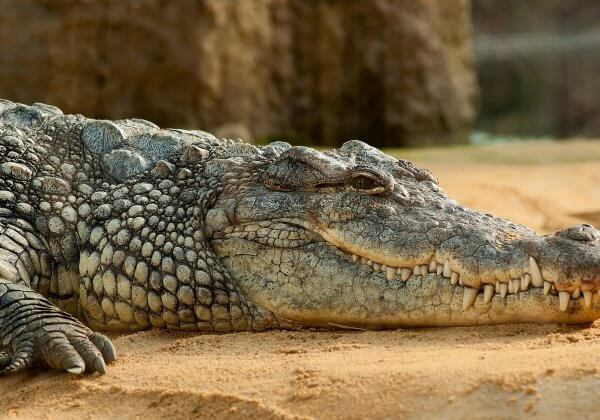What Arianwen Parkes-Lockwood Wishes Australians Knew About Wool
“They cut her throat and let her bleed to death. … and I’m next.”
In a moving new video, Australian actor and producer Arianwen Parkes-Lockwood narrates the life of a sheep, asking people who wear wool to consider the suffering of the animal it came from.
“My mother actually had twins, but my sister was weak, and it was very cold. She died.”
Born into flocks too large for individualised care and lacking industry standards that require shelter, around a quarter of lambs born in Australia die from exposure within 48 hours of birth.
In the 1950s, scientists found that it was possible to breed sheep in order to produce multiple births and therefore increase flock sizes. Now, twins and triplets are common, but they tend to have a lower birth weight, making them more vulnerable.
The industry accepts these cruel deaths because the overall number of lambs born is higher. To farmers, it’s just a numbers game to increase profits.

“They cut chunks of skin and flesh off my backside.”
Most Australian sheep are merinos, who have been bred to have wrinkly skin and therefore more wool per animal. These wrinkles collect moisture, especially under the tail, and flies lay eggs in the folds of the skin. Once hatched, maggots can eat sheep alive, a condition known as “flystrike”. In order to avoid it, many Australian farmers cut large chunks of flesh from the backsides of sheep in a painful procedure known as “mulesing“.
Many farmers argue that despite the appalling appearance of mulesing, it’s actually a kinder fate than flystrike. However, flies may also lay eggs in the festering open wounds on a mulesed sheep’s backside. Continuing to breed merino sheep only to force them to endure this painful procedure is extremely cruel and goes to show that for farmers, these animals are nothing more than dollar signs.

“They held me down, which was terrifying. … If I resisted, they stamped on my throat and twisted my neck and legs.”
Sheep are gentle prey animals who are petrified of even being held down, yet many endure vicious beatings and sustain bloody wounds and broken limbs when they’re used for wool.
PETA and our affiliates have visited 99 wool-industry facilities in Australia, the UK, North America, and South America, and cruelty to animals has been found at every single one. In Victoria in 2016, six shearers were charged with cruelty to animals after evidence showed that they beat scared sheep in the face, punched them, and stamped on their heads and necks. All six pleaded guilty.

“They crammed dozens of us into a truck then took us to a ship and pushed us onto it.”
Even sheep who survive years of repeated, stressful shearing face an awful fate.
When wool or breeding production slows, many unwanted Australian sheep are sent to saleyards and loaded onto trucks bound for abattoirs.
Those who are young and healthy enough to make the journey (although many die on the way) are crammed onto multi-tiered cargo ships and sent on a terrifying journey to the Middle East or North Africa, where their throats are cut – often while they’re still conscious.

Now that you know, what will you do?
If you, like Arianwen, don’t want to hurt sheep, please never buy wool. There are so many animal-free, environmentally friendly fabrics available now that there is simply no need to continue inflicting so much pain on vulnerable sheep.
We’re asking Forever 21 to ban wool. Join us now:







